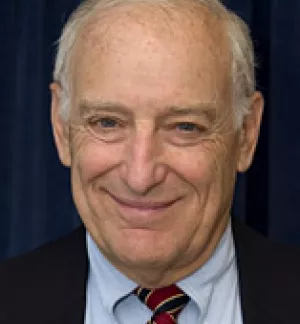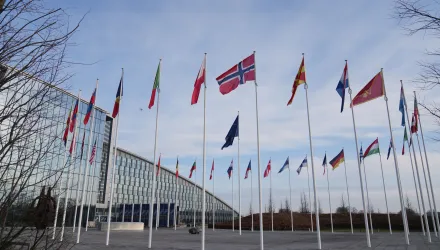Secretary of State Colin L. Powell talked tough last week in Sudan. He demanded that the Sudanese stop sponsoring or condoning ethnic cleansing in Darfur. By personally taking charge of the Darfur crisis and viewing a refugee camp there, Powell was implicitly carrying out the overall thrust of a hard-hitting report that will be presented to him in Washington tomorrow.
The report of a congressionally mandated Africa Policy Advisory Panel argues that Powell and the State Department should focus more fully on African conflicts and direct substantial diplomatic resources to the challenges and opportunities there.
Africa should no longer be treated as a humanitarian afterthought. It has consummate strategic value, not least because of terror but also because of the threat to global security caused by the nexus of tropical disease, civil conflict, and failed and failing states. In addition, many of the newest petroleum discoveries are in Africa. Fully 20 percent of US energy needs could be supplied by African countries.
Africa harbors 75 percent of the world's conflicts and absorbs 65 percent of global peacekeeping and peacemaking efforts. The panel tasked Powell with becoming much more active in attempting to reduce African mayhem.
Major innovations would include a significant increase in the official American presence throughout Africa. Our diplomatic personnel in Africa have diminished by two-thirds since the apogee of Washington's involvement there in the 1970s and 1980s. Our direct human intelligence gathering in Africa is almost nil; we rely on British and French intelligence reports or on broadcast intercepts and satellite surveillance. There is a huge knowledge gap about Africa, linguistically and intellectually, that leaves the State Department and the US Agency for International Development, not to mention the CIA, largely unprepared for new hostilities, the training and massing of terrorists, political change and turmoil, and major health threats.
Doing right by Africa will cost billions. Recruiting and posting new personnel and training them in African languages will not be inexpensive. Nor will a stepped up commitment to preventing and curing AIDS, malaria, tuberculosis, polio, and the other scourges that limit Africa's growth and development and go hand in hand with combat. But doing any less for Africa begs more trouble for the strategic interests of the United States. Furthermore, helping Africa help itself -- by debt relief among other instruments -- is far more affordable than spending funds after the fact on humanitarian disasters or politically inspired chaos.
To combat terror, the panel recommends new measures against illicit small arms sales and smuggling, especially surface-to-air missiles. It recommends striking new funding for good works among African Muslims. It urges new pressure on Saudi Arabia to stanch funding by the Saudis for African madrassas and new development assistance in Muslim areas. It also wants the administration to act swiftly to reenergize the nation-state in Somalia, now collapsed.
To reduce chaos within African countries, the panel urges the creation of a new State Department bureau for crisis diplomacy. That bureau would draw on existing resources in the departments of State and Defense and also seek to energize the African Union's own efforts in this arena. The panel wants more flexible use of USAID resources to intervene in conflicts. Further, it recommends a tenfold funding increase for the training of African armies. If African military capacity can be increased exponentially, Africans themselves can take greater charge of peace enforcement and peace building.
In all these areas, not least the battles against HIV/AIDS and the spread of narcotics, the panel strongly recommends a multilateral approach. Partnership with African countries is essential. So is a renewed partnership with the European Union and with selected Asian powers. Africa is too vast and has too many serious problems, the panel declared, for American unilateralism to be effective.
Nevertheless, in one area -- conservation -- the panel suggests that the United States has a distinct comparative advantage beyond Europe and Japan in helping Africa. The report urges Washington to scale up assistance to regional partnerships intent on conserving transboundary ecosystems (such as those abutting Zimbabwe, Mozambique, and South Africa, the Congo Basin Forest Partnership, and the marine ecosystem off the West African coast). It supports major forest sector reform, especially in the devastated failed states of West Africa. It wants Washington to focus effort and attention on the bush meat crisis that is killing the great apes and spreading deadly human and livestock diseases. Spending US funds on helping Africato redevelop its national parks would be positive for tourism, disease prevention, and the global climate.
The panel did not include an estimate of how much it would cost to implement its proposals, but all of them are realistic.
All are critical. Nearly all demand new resources, but trivial ones in relation to Africa's compelling needs and our own consuming strategic interests.
Africa's last best chance for real change and improvement is now. To miss the moment to help would be tragic -- indeed, unforgivable.
Rotberg, Robert. “New US Focus on Africa.” The Boston Globe, July 7, 2004



